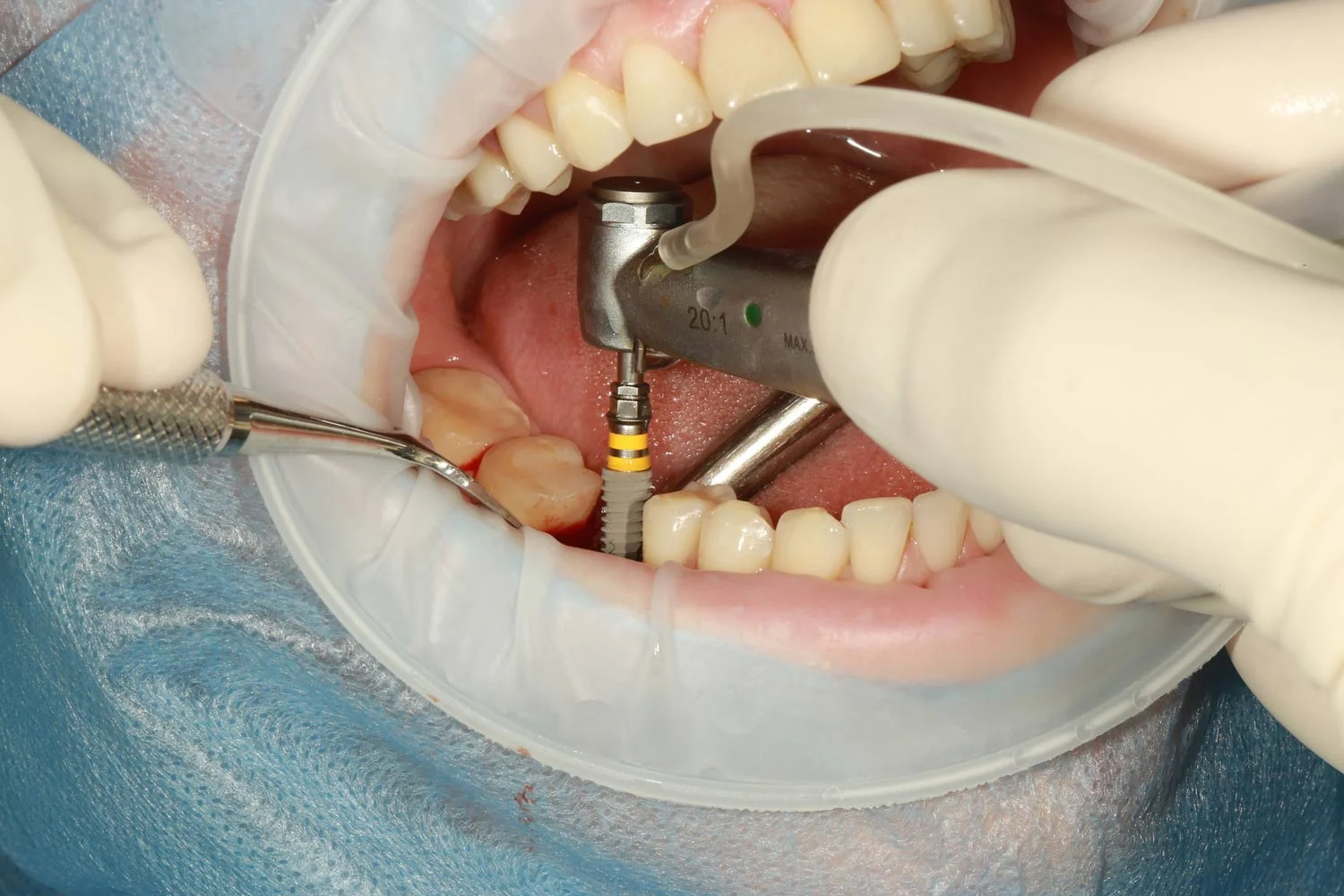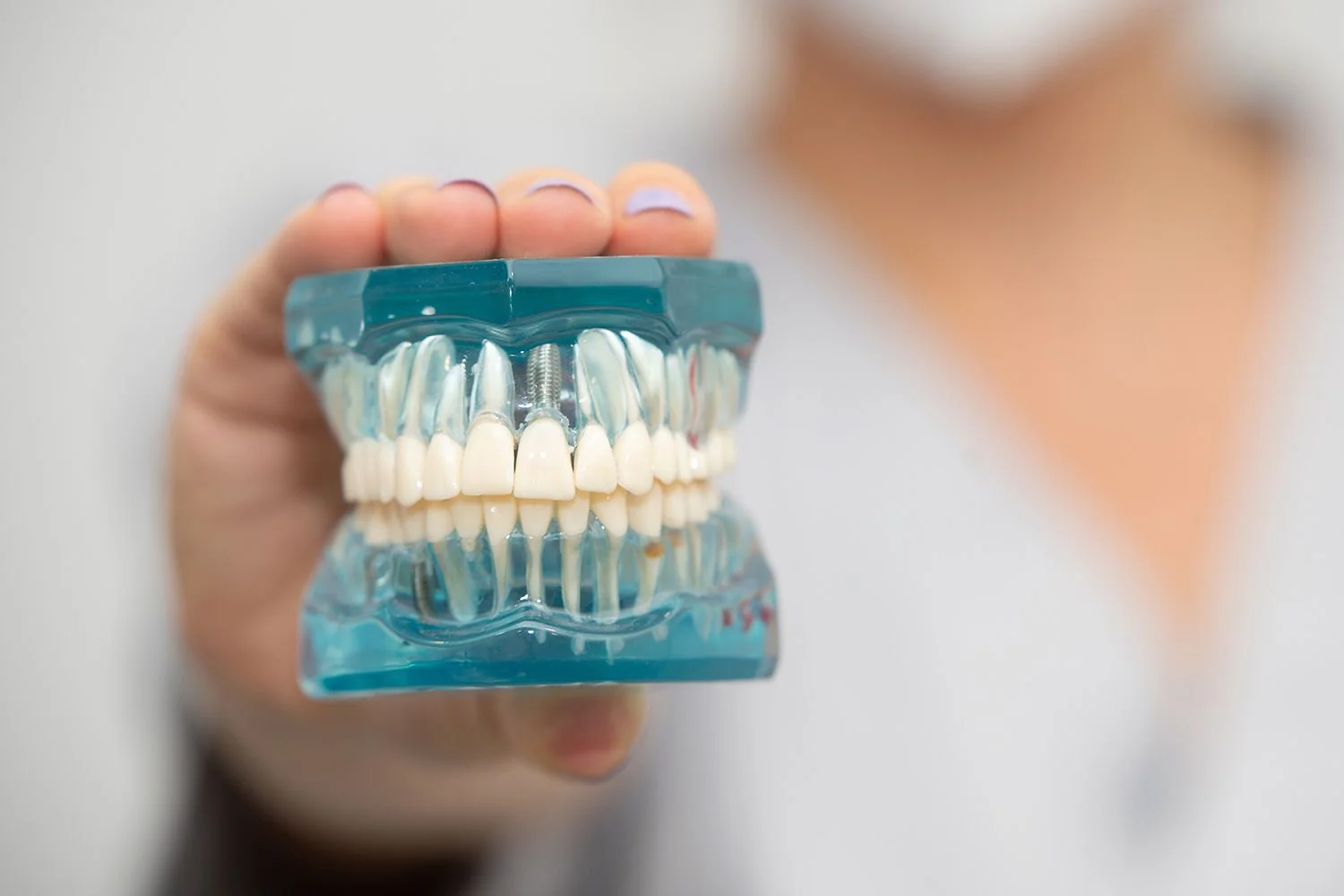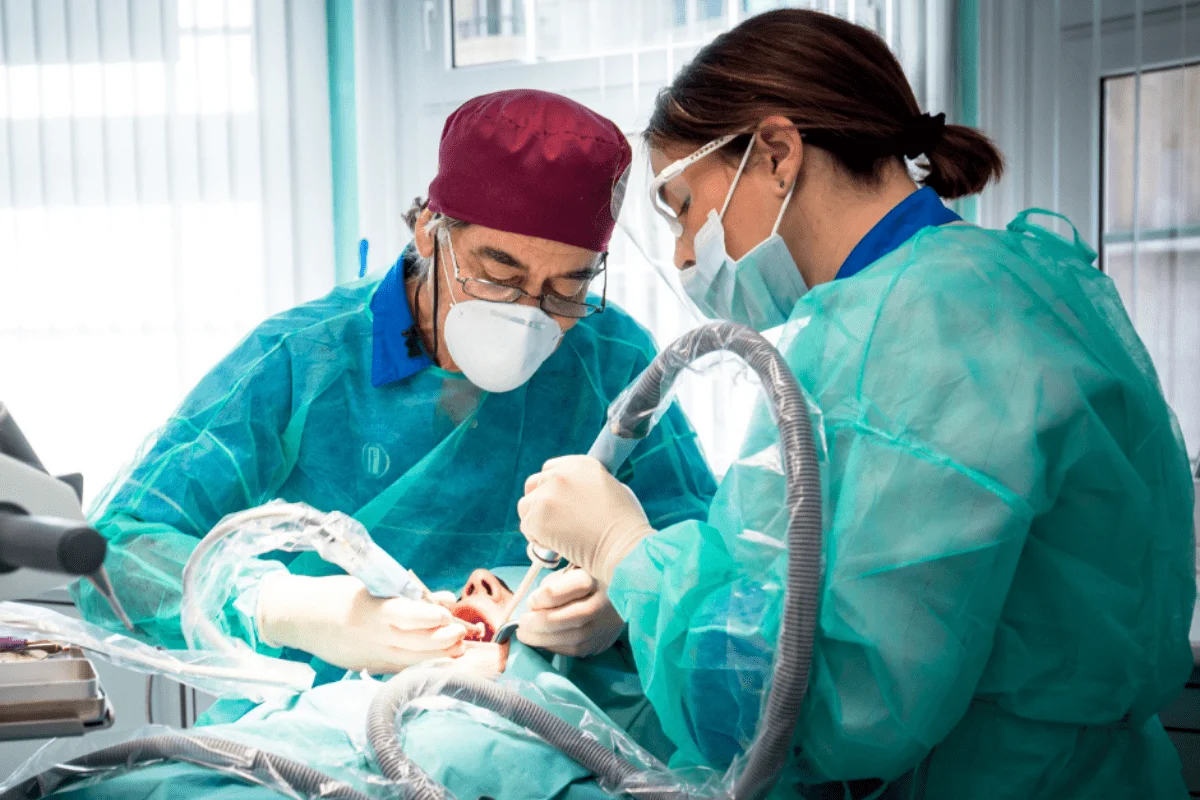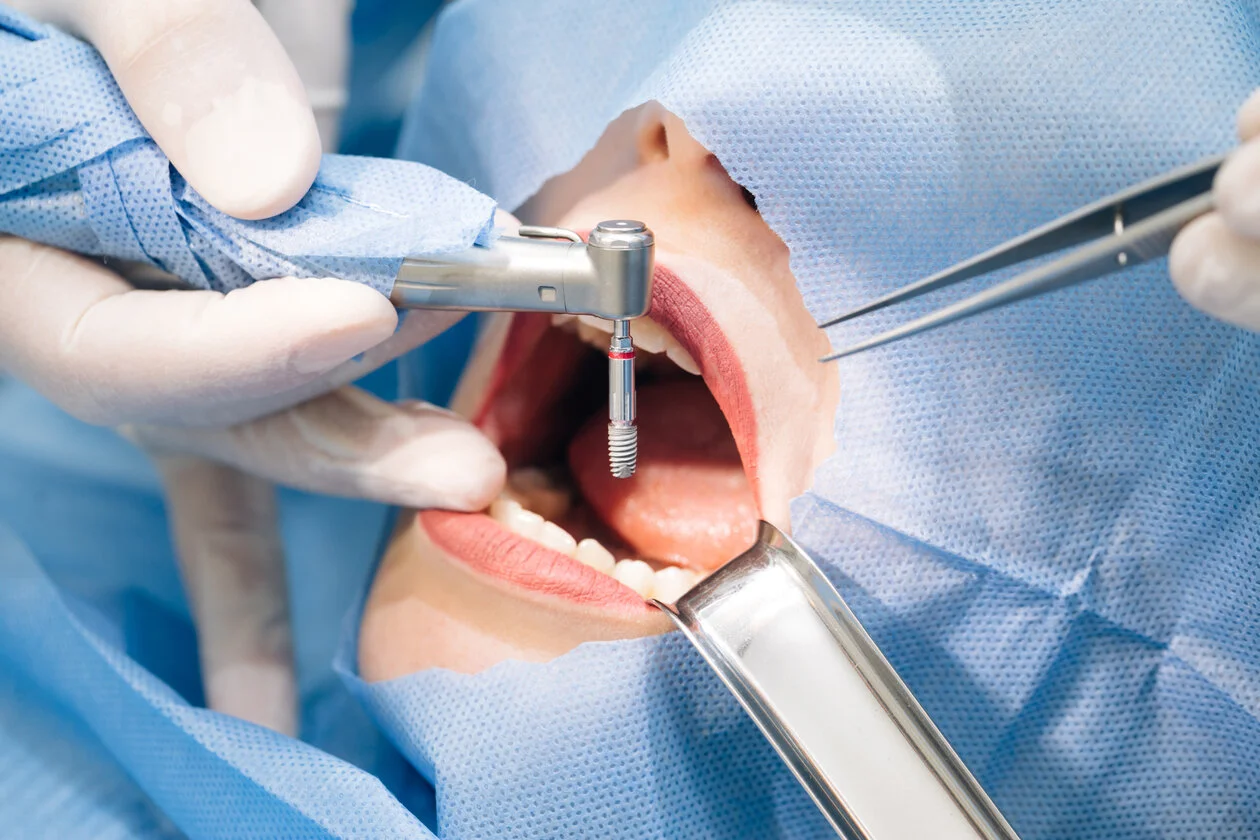Last Updated on: 12th December 2025, 05:54 am
How to Prepare for Dental Implant Surgery?: Complete Guide
Losing one or more teeth hurts general health and facial aesthetics, directly affecting self-esteem, not to mention the integral function of the mouth. Dental implants appear to be an alternative for aesthetic and functional rehabilitation when one or more teeth are lost. In this article, we will cover general aspects of dental implants, focusing on the steps before placing dental implants.
Understanding Dental Implant Surgery
 What is a dental implant?
What is a dental implant?
A dental implant is a synthetic device made of materials compatible with the body; it is intended to replace teeth or molars lost for reasons such as cavities, periodontitis, or trauma. The most common materials for the manufacture of dental implants are:
● Titanium pure (titanium CP)
● Titanium alloys
● Bioactive ceramics such as hydroxyapatite (HA)
When is the placement of a dental implant contraindicated?
Several articles published in prestigious scientific journals have highlighted conditions in which the use of dental implants is contraindicated. Below are the main contraindications for the placement of a dental implant:
1. People under 16 years of age
2. Uncontrolled Diabetes Mellitus
3. Untreated Human Immunodeficiency Syndrome
4. Patients undergoing chemotherapy or radiotherapy treatment
5. Patients on treatment with bisphosphonates
6. Patients treated with corticosteroids
7. Patients with osteoporosis
8. Patients with poor oral hygiene habits
These conditions can create a risk to the patient’s health and a great possibility of failure in the placement of dental implants.
Endosseous implants vs subperiosteal implants
Endosseous implants are placed directly inside the alveolar bone, that is the bone that supports the teeth either in the mandible or the upper jaw. On the other hand, subperiosteal implants, which are positioned in a structure designed and anchored to bones other than the jaws – for example, the zygomatic bone – are indicated when there is insufficient bone to place an endosseous implant.
Steps on how to Prepare for Dental Implant Surgery
1. Initial medical evaluation:
Before performing the procedure, it is important to know the patient’s initial health status, including their healing capacity and if they suffer from any condition that would prevent the procedure from being performed.
2. Assessment by the treating specialist:
The professional in charge of performing the dental implant will carry out a thorough assessment of the mouth, explaining the treatment options to the patient in their particular case, while ordering a series of complementary examinations. If necessary, they will also consult with your treating doctor to ensure general medical status.
3. Taking complementary exams:
The main complementary studies that the treating professional may require are:
● Carpogram
● Radiographic guidance and panoramic radiography
● Cone Beam Computed Tomography (CBTC)
● Bone densitometry
4. Reading exams and treatment plan
The treating professional will have the mission of:
● Reviewing exam results.
● Determining the need for bone grafts or membranes.
● Choosing the type of implant and the most appropriate rehabilitation options for each case.
● Evaluating the need to suspend or start taking medications before the procedure.
5. Surgical procedure
The treating professional will explain to the patient the risks and benefits of the dental implant and will prepare the area to be treated. They will then proceed to:
● Prepare the supplies (implants, membranes, and bone graft placement)
● Apply local anesthesia for one or two tooth implants or sedation in conjunction with local anesthesia for the placement of multiple implants or full mouth implants.
● Atraumatic extraction of tooth roots found at the surgical site, if present.
● Design of the cut and marking of the implant site (surgical guide)
● Milling and placement of the implant.
● Suture placement.
● Analgesic and antibiotic medications, and postoperative indications.
6. Postoperative
The treating professional will schedule a control consultation after 8 days, to evaluate the status of the implant and remove the sutures. placement of the crown or prosthetic tooth in some cases is done immediately, while sometimes, a reasonable amount of time must pass for the implant to adhere to the bone (osseointegration). This osseointegration process must be evaluated with control x-rays.
What is the Purpose of a Dental Implant Procedure?
The purpose of the dental implant is to restore the aesthetics and functionality that have been negatively affected by tooth loss, restoring the teeth with prosthetic elements such as crowns or dental prostheses supported by implants.
How Painful is Implant Placement?
Due to the inflammation generated, it is normal to experience pain during the first 5 days after the intervention. An investigation published in 2021 concluded that the surgical procedure of implant placement is less uncomfortable than tooth extraction, generating less post-surgical pain and less limitation of daily activities.
Why is Preparation Before the Placement of Dental Implants Important?
Preparation before the placement of dental implants favors the success of the procedure. The preparation must be done on a physical and mental level and requires the patient’s commitment.
Listed below are the steps for preparation before dental implant placement:
1. Avoid smoking: It has been proven that smoking delays the healing and osseointegration of the implant in the bone, increasing the risk of failure.
2. Have impeccable oral hygiene: Remember to use dental floss and the complementary rinses indicated by the treating professional.
3. If the procedure requires sedation, the surgeon may order fasting for at least 8 hours.
4. Take pain relievers and antibiotics prescribed by the treating professional before the procedure.
5. If it has been indicated, stop using the medication.
6. Organize and schedule: At times, work and leisure events may involve physical effort; for a good recovery, it is crucial to remain still during the first 3 days post-procedure.
7. Keep calm: given that the placement of dental implants is an invasive procedure, requiring patience and adequate healing times, results may vary depending upon the individual.
If you have additional questions about the placement of the implant, be sure to ask the treating professional.
Can Dental Implants Fail?
Recent studies, such as one published by Alghamdi and collaborators in 2020, have reported that the success rate of dental implants is over 90%. However, dental implants require special care before and after placement. A dental implant could fail due to:
1. Incorrect oral hygiene
2. Systemic diseases
3. The habit of smoking or consumption of alcoholic beverages
4. Infection
5. Rejection of the implant or graft
Conclusion
● Dental implant surgery is a complex procedure that requires care before and after execution.
● Performing a thorough examination of the general medical condition, improving habits, and avoiding cigarette consumption will increase the chances of success of the dental implant.
● It is important to consult with the treating professional about treatment options, how to prepare for dental implant surgery, and their risks and benefits.
● Dental implants are a viable option for tooth replacement; however, they are not indicated in all cases.
Frequently Asked Questions
What are recommendations for the day before dental implant surgery?
It is important not to eat or drink, including water, for 8 hours before surgery. If your surgery is scheduled for the morning, avoid eating and drinking after midnight the day before. Additionally, it is recommended not to smoke for at least 12 hours before the operation.The ideal plan would be to reduce or stop tobacco consumption as far in advance as possible before the day of the intervention.
What is the recovery time for a dental implant?
Patients generally achieve a complete recovery in about 2 weeks. You may feel some tenderness in the implant area, but it should be completely healed and you will feel normal. The implant will continue its healing process and integrate into the jaw bone over the next 3 to 6 months, although the initial healing phase will have already concluded.
Does the dental implant procedure hurt?
Regarding any concern about pain in dental implants, it is important to know that local anesthesia is used to numb the nerves around the implant area. Thanks to it, you will normally not experience pain during the implant surgery. You may feel pressure occasionally, but it should not be uncomfortable.
When will I be able to eat normally after receiving dental implants?
It is crucial to allow your mouth to fully recover before resuming your regular diet. Generally, you can eat normally again about a week after the implants are placed. Right after the operation, you should eat soft foods, such as applesauce and mashed potatoes.
Share:
References
1. Dental implant surgery. (Jan 29, 2019). Mayoclinic.org. https://www.mayoclinic.org/tests-procedures/dental-implant-surgery/about/pac-20384622
2. Dodge, L. (Mar 1, 2012). Dental implant procedure: Everything you need to know. Verywell Health. https://www.verywellhealth.com/what-to-expect-during-a-dental-implant-procedure-1059372
3. Whelan, C. (May 3, 2020). Dental implant procedure: What to know. Healthline. https://www.healthline.com/health/dental-and-oral-health/dental-implant-procedure
4. Alghamdi, H. S., & Jansen, J. A. (2020). The development and future of dental implants. Dental materials journal, 39(2), 167-172. https://pubmed.ncbi.nlm.nih.gov/31969548/
5. Warreth, A., McAleese, E., McDonnell, P., Slami, R., & Guray, S. M. (2013). Dental implants and single implant-supported restorations. J Ir Dent Assoc, 59(1), 32-43. https://pubmed.ncbi.nlm.nih.gov/23539970/
6. Pellegrini, G., Francetti, L., Barbaro, B., & Del Fabbro, M. (2018). Novel surfaces and osseointegration in implant dentistry. Journal of investigative and clinical dentistry, 9(4), e12349. https://pubmed.ncbi.nlm.nih.gov/29971928/
7. Sakka, S., Baroudi, K., & Nassani, M. Z. (2012). Factors associated with early and late failure of dental implants. Journal of investigative and clinical dentistry, 3(4), 258-261. https://pubmed.ncbi.nlm.nih.gov/22927130/
8. AlQutub, A. W. (2021). Pain experience after dental implant placement compared to tooth extraction. International journal of dentistry, 2021.
https://pubmed.ncbi.nlm.nih.gov/34512757/
-
Nayibe Cubillos M. [Author]
Pharmaceutical Chemestry |Pharmaceutical Process Management | Pharmaceutical Care | Pharmaceutical Services Audit | Pharmaceutical Services Process Consulting | Content Project Manager | SEO Knowledge | Content Writer | Leadership | Scrum Master
View all posts
A healthcare writer with a solid background in pharmaceutical chemistry and a thorough understanding of Colombian regulatory processes and comprehensive sector management, she has significant experience coordinating and leading multidisciplina...



















